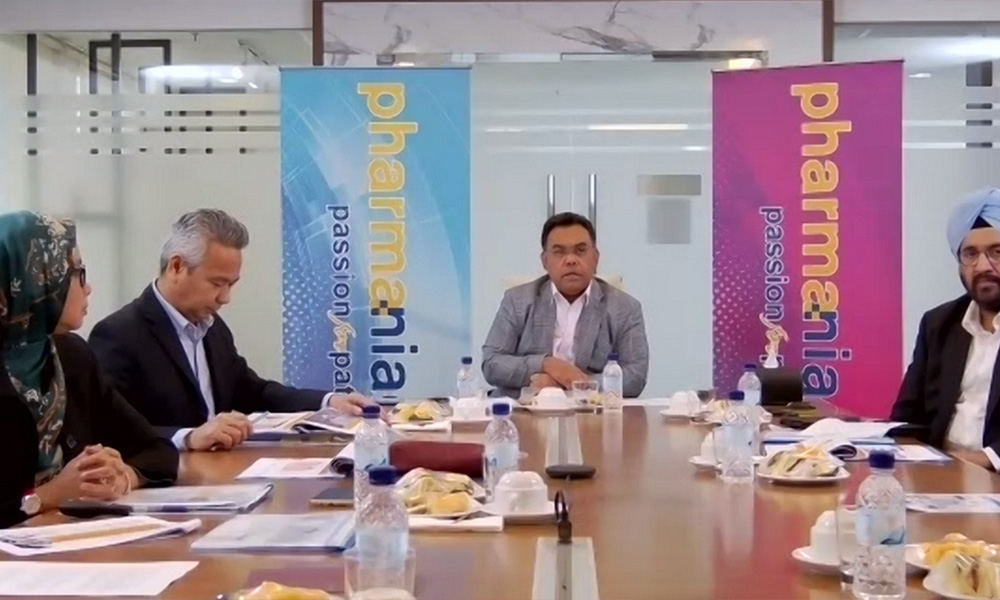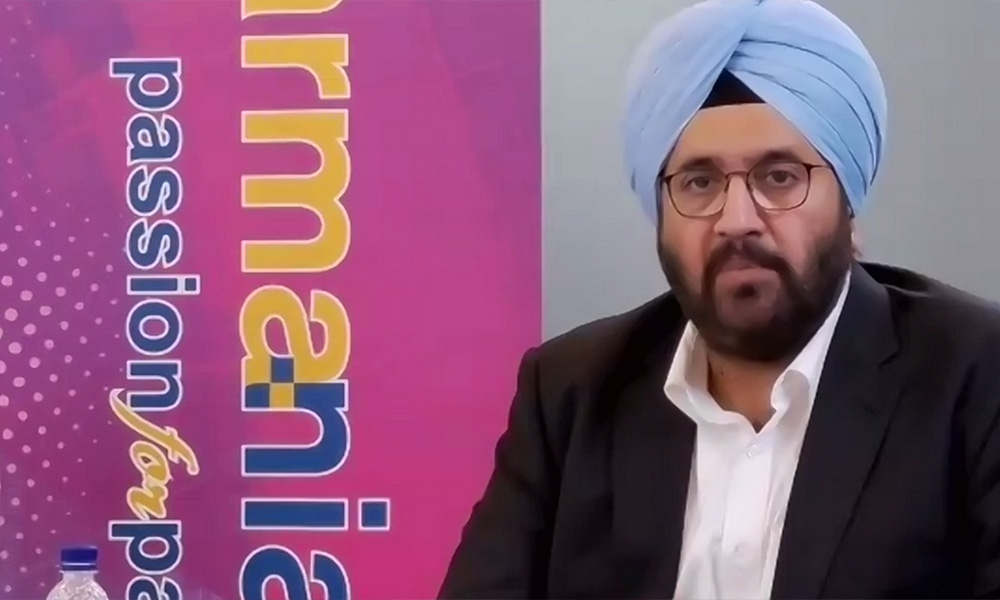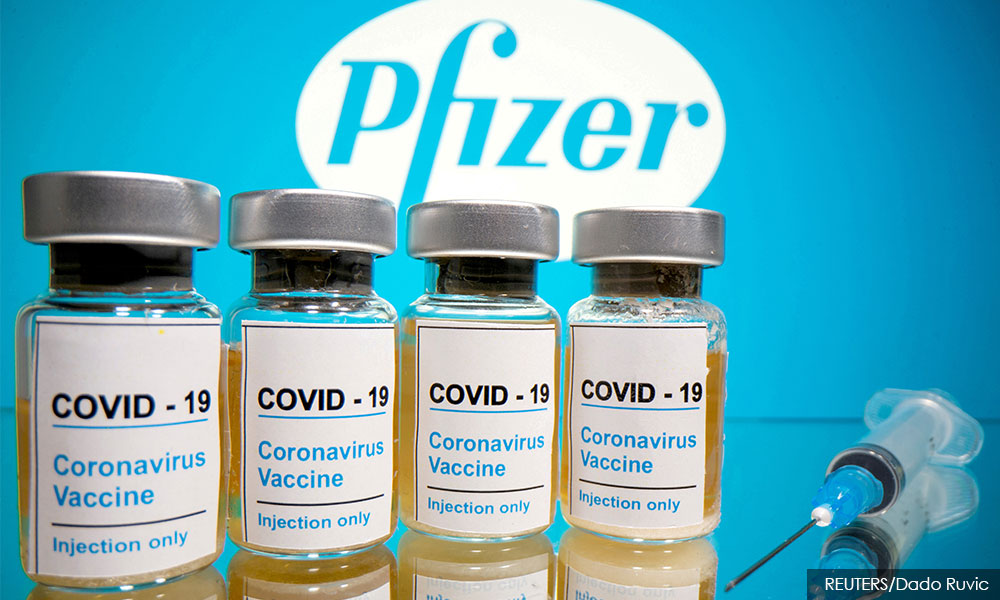Pharmaniaga Group assured that the Sinovac’s vaccine against Covid-19 will prevent severe manifestations of the disease after various research groups reported seemingly conflicting figures for the vaccine’s efficacy rate.
The company's head of research and development, Badarulhisam Abdul Rahman, highlighted that in the Brazil trial, which had reported an overall efficacy of 50.38 percent, none of the vaccine recipients required hospitalisation.
He told a press conference today that in the Phase III trial involving 9,242 medical frontliners in the country, seven had developed moderate or severe forms of Covid-19 that required hospitalisation or intensive care.
All seven had received a placebo instead of the CoronaVac vaccine produced by the China-based firm Sinovac, which corresponded to 100 percent efficacy.
However, it should be noted that the small number of volunteers who developed severe disease meant it is not yet possible to draw strong conclusions regarding the vaccine’s efficacy for this group.

Meanwhile, Badarulhisam said in terms of those who developed a mild disease or worse and required medical assistance, seven volunteers were in the vaccine group and 31 were in the placebo group.
This corresponds to efficacy of 77.96 percent.
It is only when those with very mild disease are included in the analysis does efficacy drop to 50.38 percent.
Overall, 85 volunteers who received the vaccine developed very mild forms of Covid-19 that did not require medical assistance, or worse. In comparison, 167 who received the placebo instead fell ill.
Efficacy will be better than 91pct for most people
Badarulhisam also stressed that the Brazil study involved medical frontliners who were highly exposed to Covid-19 despite their personal protective equipment.
He said the CoronaVac trial in Turkey would be more representative of the general population since it recruited volunteers from the public and the trial design is comparable to those conducted by other vaccine manufacturers.
The study in Turkey involved 11,640 members of the general population and 1,300 healthcare workers. Researchers there had claimed an interim efficacy rate of 91.25 percent.
“This is equivalent to or better than any other global vaccine that you are familiar with. We are quite confident once they concluded the data, the efficacy will be higher than 91 percent.
“This will be made available within a week or two from now when they officially finalise and make an announcement on the study,” Badarulhisam said.
All CoronaVac Phase III trials use vaccines manufactured in the same batch, apart from the Indonesian study, which was designed to assess batch-to-batch consistency and included several additional batches.
To ensure independence and transparency, Badarulhisam said the trials are conducted by independent groups in accordance with World Health Organisation (WHO) standards and Sinovac has no control over its outcome.
Data available for scrutiny soon
For the record, none of the findings above has been published in a peer-reviewed journal, meaning outside experts cannot scrutinise the data underlying their findings.
This is unlike Pfizer, AstraZeneca and Moderna, which have already published the findings of their Phase III trials late last year. Phase III trials are the last phase of clinical testing before any drug can be approved for general use.

When asked, Pharmaniaga vaccine specialist Ajit Pal Singh Raina said the manuscript for the Brazil study is still being written and is expected to be published by the end of February.
Pharmaniaga has an agreement with Sinovac to purchase 14 million doses of CoronaVac in bulk and transfer technology for the China-based firm.
The bulk vaccine will be filled and finished into the final product at its small volume injectable plant in Puchong, Selangor, of which 12 million doses will go to the Health Ministry and be provided to Malaysians for free.
This is contingent on the vaccine receiving approval from the National Pharmaceutical Regulatory Agency (NPRA).
CoronaVac requires two doses per person, which are to be administered 14 days apart.
Badarulhisam said the vaccine-induced a slightly better antibody response, especially six months after the second dose, if the two doses are administered 28 days apart.
However, the 14-day regimen is preferred over the 28-day regimen to give priority to vaccinate as many people as possible, in view of the ongoing pandemic.
Malaysia buying vaccines from five manufacturers
Apart from Sinovac’s CoronaVac, Malaysia has signed agreements to purchase Covid-19 vaccines from Pfizer, Gamaleya Institute and AstraZeneca.
It is also finalising a deal to purchase vaccines from CanSino Biologics, which is the only vaccine in Malaysia’s vaccine portfolio that promises to be effective after only one dose.

The vaccine co-developed by Pfizer and BioNTech is purported to have an overall efficacy of 95 percent, with only one study volunteer who received the vaccine developing serious Covid-19.
The vaccine co-developed by AstraZeneca and Oxford University had an efficacy ranging from 62 percent to 90 percent, depending on dosage, with an overall efficacy of 70.4 percent.
Gamaleya Institute claimed an interim efficacy of 91.4 percent for its Sputnik V vaccine, but has yet to publish the underlying data from its study.
CoronaVac drew attention after various research groups claimed efficacy rates ranging from 50.4 percent to 91.25 percent for their respective studies.
The lower end of that figure is barely above the 50 percent benchmark that WHO said should be the minimum acceptable efficacy for a Covid-19 vaccine.
Following reports on the Brazilian study on CoronaVac, Special Vaccine Supply Access Guarantee Committee co-chairperson Khairy Jamaluddin had assured that the NPRA would access all vaccines for safety and efficacy and would not approve those that fail to meet standards.
Pharmaniaga said it has submitted the necessary documents on Sinovac vaccine to the NPRA on Jan 19 and expects to receive approval by late-February or early-March. - Mkini



No comments:
Post a Comment
Note: Only a member of this blog may post a comment.